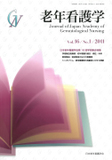Japanese
English
- 販売していません
- Abstract 文献概要
- 参考文献 Reference
抄録
胃瘻栄養を代理決定した主家族介護者(以下,介護者)による高齢者への胃瘻栄養の在宅介護の体験を明らかにすることを目的として,退院後から胃瘻栄養の在宅介護が継続中で,6か月以上の経験がある介護者9人を対象に,半構造面接を実施し修正版グラウンデッド・セオリーを用いて分析した.胃瘻栄養の代理決定をした介護者は,簡便性等の【胃瘻栄養だからできる】余裕から【断ち切れない絆】を大切にし【私も大事】にでき,在宅介護を肯定的に体験していた.しかし,【やってみて分かった胃瘻栄養介護の辛酸】によって,介護者は<胃瘻選択への疑念>を抱き,<終わりがみえない>日々に追い詰められ,在宅介護は<首に手がいく>【煩悶のきわみ】の否定的な体験となり,在宅介護は苦悩に満ちた危機的なものになった.胃瘻栄養の在宅介護が肯定的体験のときも,否定的体験のときも,【断ち切れない絆】は影響力をもち,胃瘻栄養の在宅介護において中核をなすカテゴリーであった.
In order to elucidate the care experience of home percutaneous endoscopic gastrostomy (PEG) feeding by main family caregivers (caregivers) who made a surrogate decision to place a PEG tube, we conducted semi-structured interviews with nine caregivers who were engaged in ongoing home care including PEG feeding for six months or more after leaving hospital, and analyzed the interviews based on the Modified Grounded Theory approach. The caregivers of home PEG feeding who made a surrogate decision on it continued the positive care situation in which they could esteem “unbreakable bonds” and “take care of themselves” through their composure “provided by PEG feeding.” However, when the caregivers went through “hardship of PEG feeding care realized by actual experience,” they suffered “doubts about their choice of PEG” and “everlasting days,” and followed the negative care situation which drove them to “the extremity of anguish,” represented by the phrase “nearly strangling the elderly person with their hands,” which made the home care anguished and critical. The “unbreakable bonds” were influential in both the positive and negative care situations and constituted the core category in home PEG
Copyright © 2011, Japan Academy of Gerontological Nursing All rights reserved.


